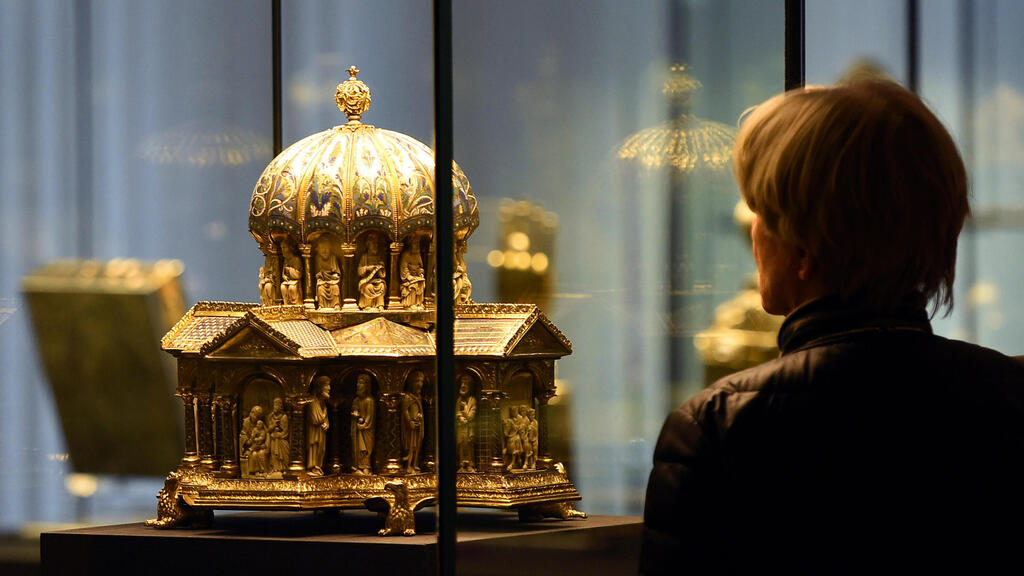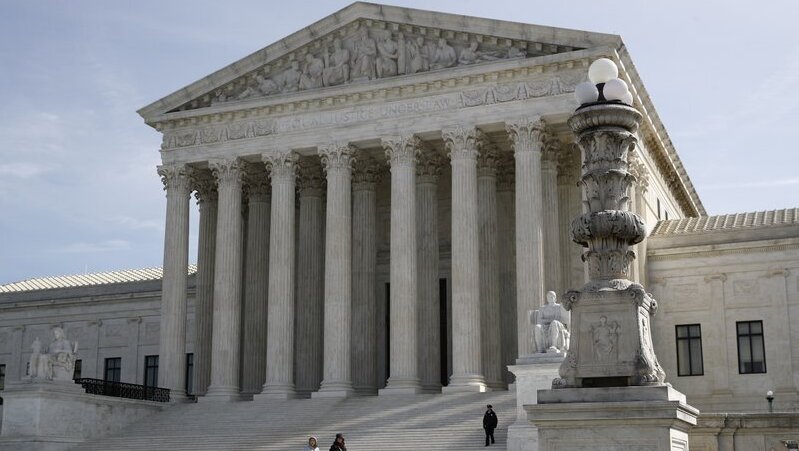U.S. Supreme Court is making it harder for a multimillion-dollar lawsuit involving centuries-old religious artworks obtained by the Nazis from Jewish art dealers to continue in American courts.
The court ruled unanimously Wednesday in a case involving the 1935 sale of a collection of medieval Christian artwork called the Guelph Treasure.
2 View gallery


A visitor looks at the the cupola reliquary of the so-called Guelph Treasure in Berlin
(Photo: TPS)
The heirs of the art dealers contended the sale of the works, now said to be worth at least $250 million, was done under pressure. Germany disagreed and argued that the case did not belong in the American legal system.
The justices said the heirs had not at this point shown that federal law allowed them to bring their case in U.S. courts. The court sent the case back for additional arguments.
Writing for the court, Chief Justice John Roberts said that law does not cover what a foreign country does to property belonging to its own citizens within its own borders.
"As a nation, we would be surprised - and might even initiate reciprocal action - if a court in Germany adjudicated claims by Americans that they were entitled to hundreds of millions of dollars because of human rights violations committed by the United States government years ago," Roberts wrote.
"There is no reason to anticipate that Germany's reaction would be any different were American courts to exercise the jurisdiction claimed in this case," Roberts added.
Because of that ruling, the Supreme Court also sent a similar case involving a group of Hungarian Holocaust survivors back to a lower court. They were seeking to be compensated for property taken from them and their families when they were forced to board trains to concentration camps.
The Prussian foundation's own investigation found that the sale was a "voluntary, fair-market transaction," and a German commission that looks into Nazi-looted art agreed that it was not made under duress and the price reflected the Great Depression's effect on the art market.


